Understanding micronutrient deficiencies for better health: an interview with Dr Molly Muleya
June 26, 2020
Molly Muleya is a postdoctoral researcher on the Future Protein’s Platform. Molly’s research examines the protein and mineral digestibility from foods of dietary and planetary importance. Her research is at the interface of agriculture, food science, nutrition and health and seeks to understand factors across the food chain, that modify protein and mineral bioavailability of …
The Future Proteins Platform
June 24, 2020
Protein is an essential part of the human diet, providing an important building block for the body, as well as being used to build and repair tissue. As populations become increasingly wealthy, and urbanised, so the way they consume protein changes. Increased demand for meat, fish and dairy products is seen throughout the world as …
Producing future proteins sustainably: an interview with Prof Andy Salter
June 23, 2020
Andy Salter is a Professor in Nutritional Biochemistry and is leading the Future Proteins Platform, a £1 million Innovation Challenge project funded by the Future Food Beacon. Andy has worked extensively on the molecular mechanisms whereby diet impacts upon lipid metabolism and metabolic disease, particularly cardiovascular disease. In parallel, he has developed a research portfolio …
Understanding oil crop sustainability: An interview with Dr Thomas Alcock
May 27, 2020
Dr Thomas Alcock is a postdoctoral researcher with the Future Food Beacon, researching oil crops and sustainability. Prior to this role, he held a Future Food Doctoral award, in which he worked on identifying the genetic basis of magnesium uptake in Brassica crops, with the hope of developing more nutritious vegetables. Here, he shares with …
Mini-Traction Machine (MTM-2): Tribometer / Soft Contact Tribometer
May 12, 2020
We spoke to Dr Gleb Yakubov about the mini-traction machine (MTM-2): tribometer used in Food Science for experiments and research. Tell us about your research? What kind of things are you exploring? In my group, we are interested in linking molecular and structural features of polysaccharides (polymeric sugars) with their functionality in foods, plants, and …
Genomic sequencing and Covid-19
April 30, 2020
Deep Seq, the University of Nottingham’s state of the art high-throughput genomics facility, is currently part of the COVID-19 Genomics UK Consortium, mapping the spread of coronavirus. We spoke to Prof Matt Loose and Dr Christopher Moore, about the work, the equipment they use, and how they are adjusting to this new challenge. Tell us …

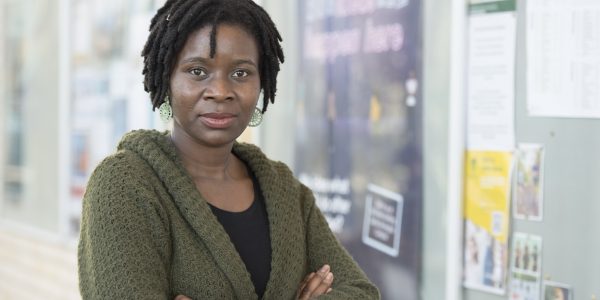
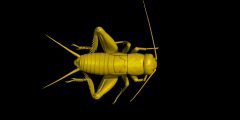
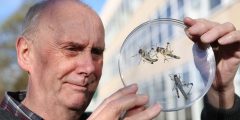
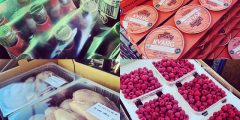
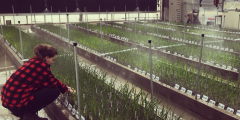
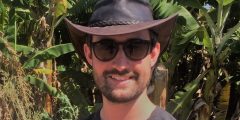

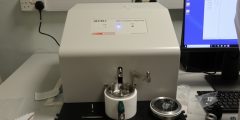

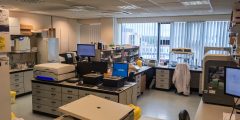
Recent Comments